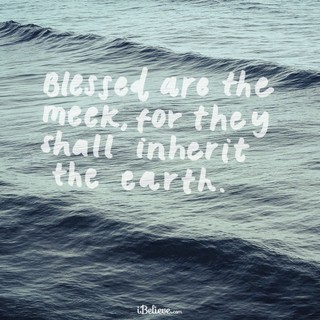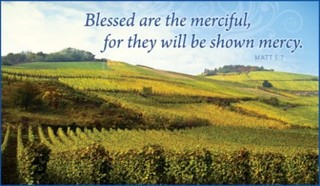
Change Translation
- Recent Translations
- All Translations
Matthew 5:35
Share
Listen to Matthew 5:35
Settings
Scripture Text Size
35
nor by the earth, because it is His footstool, nor by Jerusalem, because it is a city of a great king,
Matthew 5:35 Meaning and Commentary
Matthew 5:35
FOOTNOTES:
F17 Misn. Nedarim, c. 1. sect. 3.
F18 In. ib.
F19 T. Bab. Nedarim, fol. 11. 1.
F20 In loc. ex Tosapht. in Nedarim, c. 1.
Nor by the earth, for it is his footstool
That the Jews were wont to swear by the earth, is clear from the above mentioned instances; and is condemned by Christ for this reason, because the earth is God's "footstool", referring, as before, to ( Isaiah 66:1 ) on which he treads; and where he also manifests forth his glory, and is a considerable part of the work of his hands.
Neither by Jerusalem,
which the Jews used to swear by: such forms of vows as these are to be met with in their writings F17;
``as the altar, as the temple, (Mlvwryk) , "as Jerusalem";''that is, by Jerusalem, I vow I will do this, or the other thing.
``R. Judah says, he that says Jerusalem (i.e. as Bartenora observes F18, without the note of comparison, as) says nothing.''In the Gemara F19 it is,
``he that says as Jerusalem, does not say anything, till he has made his vow concerning a thing, which is offered up in Jerusalem.''Dr. Lightfoot F20 has produced forms of vowing and swearing, which have not occurred to me.
``Jerusalem; (Mlvwryl) , "for", or "unto Jerusalem", which exactly answers to (eiv Ierosoluma) , here; and "by Jerusalem";''The reason given for prohibiting this kind of oath, is;
for it is the city of the great king:
not of David, but of the King of kings, the Lord of hosts; who had his residence, and his worship, here; see ( Psalms 48:2 ) .
F17 Misn. Nedarim, c. 1. sect. 3.
F18 In. ib.
F19 T. Bab. Nedarim, fol. 11. 1.
F20 In loc. ex Tosapht. in Nedarim, c. 1.
Taken from John Gill's Exposition of the Bible
Unlock Deeper Insights: Get Over 20 Commentaries with Plus! Subscribe Now
Matthew 5:35 In-Context
33
`Again, ye heard that it was said to the ancients: Thou shalt not swear falsely, but thou shalt pay to the Lord thine oaths;
34
but I -- I say to you, not to swear at all; neither by the heaven, because it is the throne of God,
35
nor by the earth, because it is His footstool, nor by Jerusalem, because it is a city of a great king,
36
nor by thy head mayest thou swear, because thou art not able one hair to make white or black;
37
but let your word be, Yes, Yes, No, No, and that which is more than these is of the evil.
Young's Literal Translation is in the public domain.

